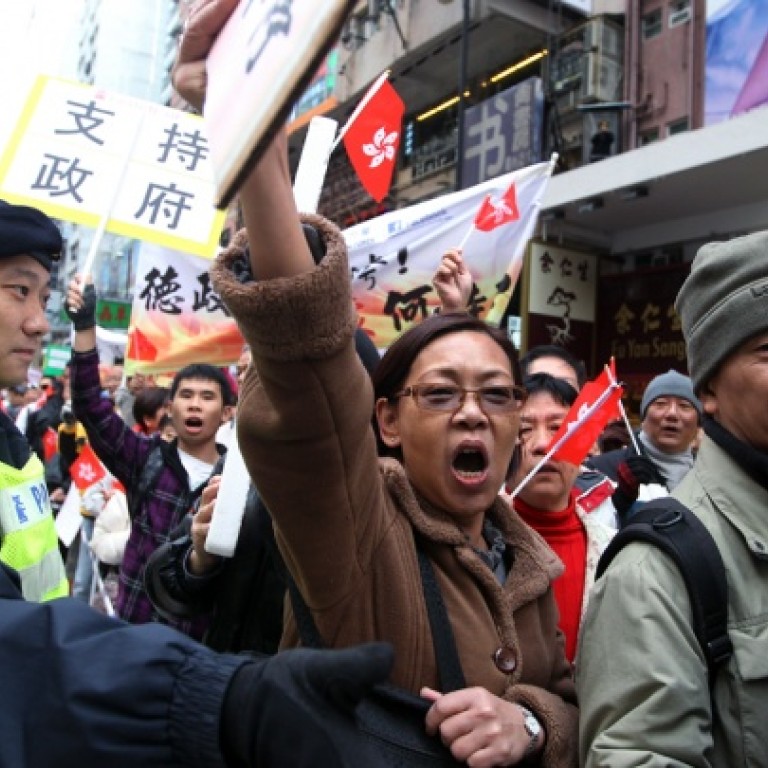
Pro-government groups must be more open about their agenda
Stephen Vines wonders if fringe organisations are really on the fringe
It may be too soon to start ringing the alarm bells but something is happening in Hong Kong that mirrors the ugliest tactics of pro-government supporters in odious regimes overseas.
At the extreme, pro-government thugs in places like Zimbabwe go as far as killing anti-government activists. In Russia, thugs have been mobilised to terrorise the brave opponents of the Putin regime and intimidate the media when reporters refuse to toe the line.
Here in Hong Kong, we are witnessing the rise of a pro-government group called Caring Hong Kong Power, which came to prominence late last year when one of its members attacked a television cameraman covering a rally organised by the group. Its members are regularly mobilised to protest against other targets regarded as being anti-government.
It may be argued that this and other ad hoc groups claiming to be patriots are doing little more than aping the activities of some anti-government organisations. However, there are significant differences here.
First, this "Caring" group is an internet-based group that does not issue public statements explaining its positions, although members are vocal about what they don't like.
Second, documentary evidence exists that pro-government activists have been paid for joining demonstrations. In one widely viewed film, a demonstrator is seen loudly complaining that he did not get the money he was promised.
Third, and most importantly, there is a big difference between governments seeking support from political parties and other organisations that share their views, and seeking support from people with no open agenda but an obvious intention to silence opponents.
It should be stressed that no concrete evidence exists linking government bodies with these organisations. Nor is it possible to be sure whether they form part of the famous united front tactics employed in Hong Kong, which are very much in the traditions of communist parties worldwide that mobilise support under various aliases and by use of front organisations.
In the absence of hard evidence, questions need to be asked about who gains most from the activities of bodies seeking to disrupt anti-government activities.
This new development falls far from the traditions of politics in Hong Kong, although it provides a chilling reminder of the days in the 1960s when the Cultural Revolution spilled over the border and media and other personalities seen as hostile to the Communist Party were murdered and mobs were out in force waving little red books.
Fortunately, political discourse has become less violent since then. Political opponents share platforms in a civilised way and even demonstrations have limits. A classic example of this is what happens on July 1, the Hong Kong Special Administrative Region establishment day, which has become an occasion for pro-government forces to rally in the morning and anti-government forces to mobilise in the afternoon.
On the fringe of the pro-government events, the more extremist anti-government groups have sought to cause disruption, and the size and influence of these groups has grown. However, it is quite one thing for those outside government to protest and for those supporting the status quo, possibly with covert support, to behave as though they are the powerless outsiders.
There is no need to be alarmed about a polarisation of opinion; this, after all, is perfectly natural. But it is alarming to see this disintegrate into thuggery. It is also somewhat troubling that there has been no word from officials about all this, although they never seem reticent to comment about alleged disruptive activity when it comes from the opposition camp.

